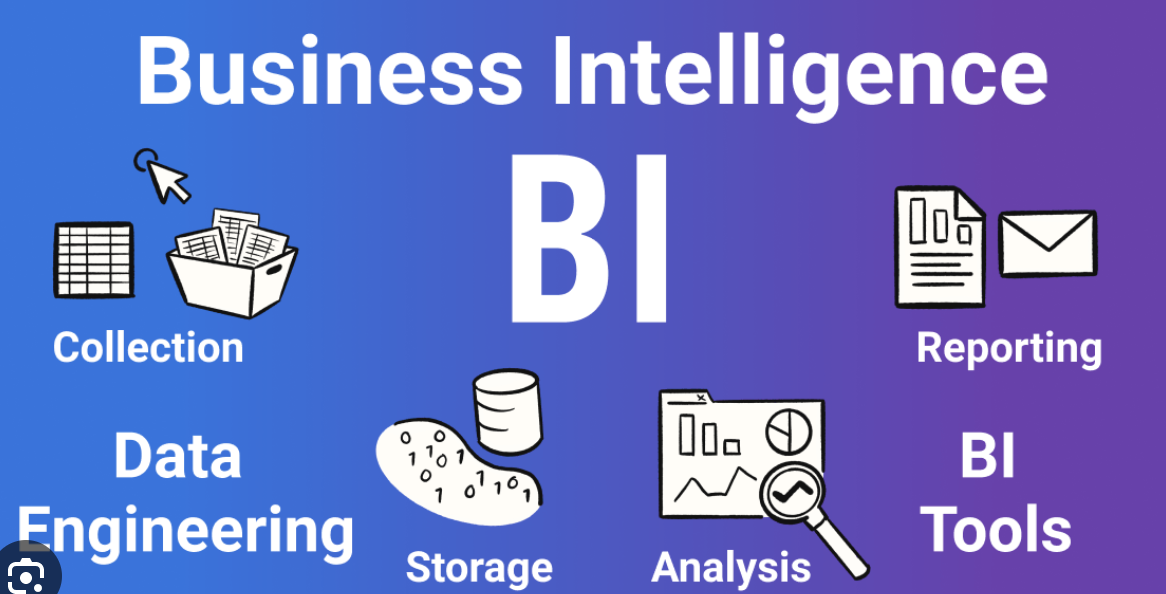Business Intelligence (BI) is more than just a buzzword; it represents a plethora of tools, applications, and methodologies that enable organizations to collect data from internal and external sources, prepare it for analysis, develop and run queries against the data, and create reports, dashboards, and data visualizations to make analytical results available to corporate decision-makers as well as operational workers.
While BI can transform business operations, its implementation is not without challenges:
- Data Quality and Management: The effectiveness of BI is directly tied to the quality of data. Poor data practices can lead to misleading insights and decisions.
- High Implementation Costs: Initial setup costs for BI systems can be high, particularly for advanced analytics capabilities.
- Resistance to Change: Employees may resist adopting new technologies, which can hinder the successful deployment of BI systems.
Business Intelligence in Small vs. Large Enterprises
The application of BI varies significantly between small and large enterprises:
- Tools and Strategies for Small Businesses: Smaller entities might opt for scaled-down, more affordable BI solutions that are easier to manage and implement.
- Scalability and Integration in Large Corporations: Larger businesses require robust BI systems that can integrate with multiple data sources and scale as the organization grows.
Role of AI and Machine Learning in BI
AI and Machine Learning are revolutionizing BI by enhancing its capabilities:
- Automation of Data Analysis: AI can automate routine data analysis tasks, freeing up human analysts for more complex analyses.
- Predictive Analytics: Machine learning models can predict trends and behaviors, giving businesses a competitive edge.
- Personalized Business Insights: AI algorithms can tailor insights to the specific needs of a business or individual, making the data more relevant.
Case Studies: Successful BI Implementation
Real-world examples illustrate the impact of effective BI systems:
- Example 1: Retail Industry: How a major retailer used BI to optimize inventory levels and improve customer satisfaction.
- Example 2: Healthcare Sector: A case study on how a healthcare provider leveraged BI to reduce patient wait times and improve treatment outcomes.
Future Trends in Business Intelligence
The future of BI is shaped by emerging trends:
- The Rise of Real-Time BI: Increasing demand for real-time data processing to make immediate decisions.
- Increased Cloud Adoption: More businesses are moving their BI systems to the cloud for better scalability and accessibility.
- Ethical Considerations and Data Privacy: As data usage increases, so does the focus on ethical concerns and privacy regulations.
How to Successfully Implement a BI Solution
Steps for a successful BI implementation include:
- Planning and Strategy: Developing a clear plan that outlines business goals and how BI can support them.
- Choosing the Right Tools: Selecting BI tools that align with the business’s size, industry, and specific needs.
- Training and Support: Ensuring employees are trained to use BI tools effectively and have ongoing support.
Comparing Top BI Tools
Analysis of leading BI tools provides insights into their strengths and weaknesses:
- Features, Pros, and Cons: Detailed comparison of features, advantages, and limitations of each tool.
- Market Leaders and Their Unique Offerings: Overview of the market leaders in BI and what makes them stand out from the competition.
Expert Opinions and Insights
Insights from BI professionals can provide additional depth:
- Interviews or Quotes from BI Professionals: Gathering insights from industry experts on the current landscape and future of BI.
Conclusion
In conclusion, Business Intelligence is an indispensable tool for modern businesses. By converting data into actionable insights, BI helps companies make informed decisions that can lead to increased efficiency and profitability. As BI technology evolves, it will continue to shape how businesses operate and compete in an increasingly data-driven world.
FAQs
- What is Business Intelligence? Business Intelligence (BI) involves technologies and strategies used by enterprises for data analysis of business information, providing historical, current, and predictive views of business operations.
- How does Business Intelligence help a business? BI helps businesses make better decisions by showing present and historical data within their business context. Analysts can leverage BI to provide performance and competitor benchmarks to make the organization run smoother and more efficiently.
- What are the major components of a BI system? Major components include data warehousing, business analytics, data visualization, and reporting tools.
- What is the difference between traditional data processing and BI? Traditional data processing is designed to handle sets of data for routine operations, while BI transforms data into actionable insights, supporting strategic decision-making.
- Can small businesses benefit from BI? Yes, small businesses can greatly benefit from BI by using it to gain insights that are crucial for survival in competitive markets, often using scaled-down, cost-effective tools designed for smaller operations.
